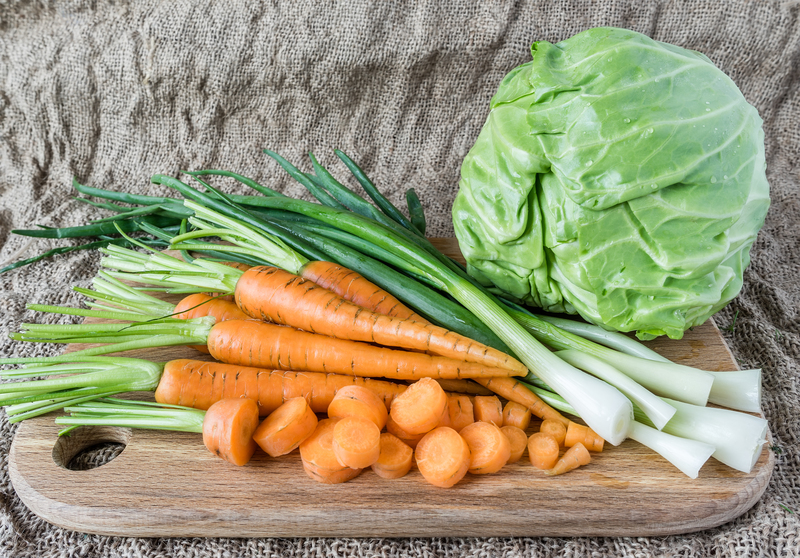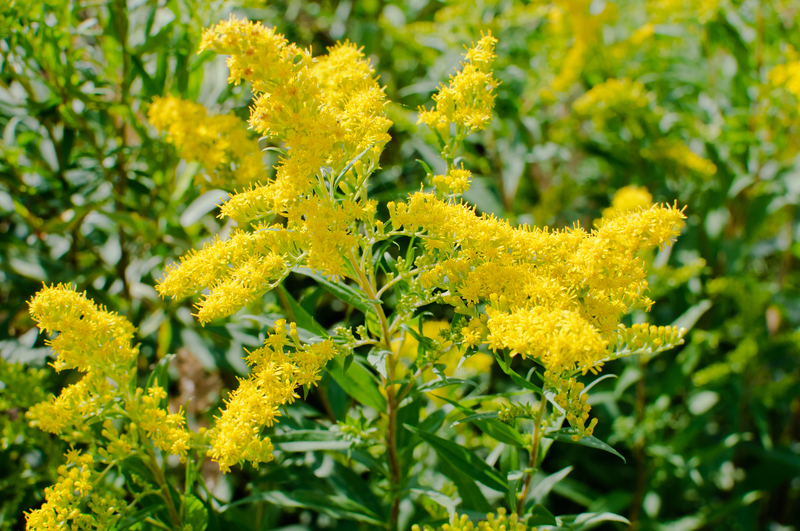Unlock the Art of Herb Gardening for Beginners
Posted on 05/06/2025
Unlock the Art of Herb Gardening for Beginners
Herb gardening is a timeless and rewarding hobby that not only beautifies your living space but also enriches your meals and daily routine with fresh, aromatic flavors. If you have ever dreamed of cultivating your own basil, mint, or rosemary but felt unsure where to start, this comprehensive guide is tailored just for you. Unlock the art of herb gardening for beginners and discover everything you need to know-- from choosing the right herbs to nurturing your plants and making the most of your harvest!
Why Start a Herb Garden?
- Freshness at Your Fingertips: Enjoy fresh, organic herbs without a trip to the grocery store.
- Flavor Enhancement: Elevate your cooking with vibrant flavors straight from your garden.
- Health Benefits: Grow herbs rich in vitamins, antioxidants, and essential oils.
- Cost-Effective: Save money long-term by growing instead of buying fresh herbs.
- Therapeutic: Gardening reduces stress and promotes a sense of well-being.

Understanding Herb Gardening Basics
Before you begin your herb gardening for beginners journey, it's important to understand what makes herbs unique as plants. Herbs are typically aromatic plants used in cooking, medicine, and even home decor. Some are annuals (like basil and cilantro), while others are perennials (such as rosemary and thyme), meaning they come back year after year if cared for properly.
Annual vs. Perennial Herbs
- Annual Herbs: Need to be replanted each year (e.g., basil, cilantro, dill).
- Perennial Herbs: Return every season (e.g., chives, oregano, thyme, mint, rosemary).
*It's essential to know which variety you're planting as this affects how you care for your herb garden and plan your space.*
Choosing the Right Location
Herbs thrive best when given the proper environment. Here are key location factors:
- Sunlight: Most herbs require 6-8 hours of direct sunlight daily.
- Soil: Well-draining soil is critical; consider raised beds or pots if your soil holds too much moisture.
- Accessibility: Plant near your kitchen or patio for easy snipping.
Getting Started: Planning Your Herb Garden
Deciding Between Container and In-Ground Herb Gardens
As a beginner in the art of herb gardening, it's valuable to consider the pros and cons of container versus in-ground gardens:
- Container Herb Garden: Ideal for small spaces, balconies, or patios. Easier to manage soil quality and water drainage. Perfect for indoor herb gardening as well.
- In-Ground Herb Garden: Suitable for larger outdoor spaces. Allows for more variety and larger harvests. Once established, requires less frequent watering.
Choosing the Best Herbs for Beginners
Not all herbs require the same care. Some flourish with little attention, making them excellent choices for those just embarking on their herb gardening for beginners adventure.
- Basil: Fast-growing and perfect for salads, pesto, and Italian dishes.
- Mint: Hardy and versatile, great for teas, desserts, and cocktails--but best grown in a pot to prevent spreading.
- Parsley: Hardy, can thrive in partial shade, and is commonly used as a garnish.
- Chives: Easy to grow and helps deter pests.
- Rosemary: Fragrant and drought tolerant once established.
- Cilantro: Essential for salsas and South American cuisine; prefers cooler temperatures.
- Oregano: Perennial and a staple in Mediterranean recipes.
- Thyme: Low maintenance and thrives in dry conditions.
Step-by-Step: How to Start Your Herb Garden
1. Gather Your Supplies
- Pots or Containers: If opting for containers, ensure each has drainage holes.
- Herb Seeds or Young Plants: Beginners often have more success with seedlings than seeds.
- Potting Mix: Choose a high-quality, well-draining mix.
- Watering Can or Hose: For gentle, consistent watering.
- Labels: To keep your herbs organized.
- Fertilizer (optional): Some herbs may benefit from light feeding.
2. Planting Your Herbs
- Fill pots or garden beds with rich, well-draining soil.
- Plant seedlings so the base of the stem is just above the soil level.
- Water thoroughly after planting to help roots establish.
- Label each herb so you can identify them as they grow.
3. Caring for Your Herb Garden
- Watering: Most herbs prefer the soil to dry slightly between waterings. Too much water promotes root rot.
- Pruning: Regular snipping encourages bushier growth and prevents flowering (which can alter flavor).
- Mulching (outdoor gardens): Helps retain moisture and reduces weeds.
- Fertilization: Go light on fertilizer; too much can reduce flavor intensity.
- Pest Management: Keep an eye out for aphids or spider mites; treat naturally with neem oil or soapy solutions.
4. Harvesting Your Herbs
- Best Time: Morning is optimal for harvesting, when oil content and flavor are highest.
- Frequency: Regular harvesting prolongs the plant's productive life and flavor quality.
- Technique: Use sharp scissors to snip sprigs or leaves above a leaf node to encourage regrowth.
Tips for Thriving Herb Gardens
Common Challenges and Solutions
- Leggy Herbs: If your herbs are tall and spindly, they're reaching for more sunlight. Move them to a sunnier spot.
- Yellow Leaves: Often a sign of overwatering or poor drainage. Check your soil and reduce watering frequency.
- Pests: Use natural pest control methods such as neem oil, or encourage beneficial insects like ladybugs.
- Bolting: Some herbs (especially cilantro and basil) may flower prematurely in hot weather. Harvest frequently and plant new seeds through the season for continued supply.
Indoor vs. Outdoor Herb Gardening
- Indoor Herb Gardens: Best for herbs like basil, parsley, chives, and cilantro. Place on a sunny windowsill and rotate regularly to prevent leaning.
- Outdoor Herb Gardens: Excellent for more robust or spreading herbs like rosemary, sage, and mint. Make sure temperatures stay above frost levels unless the herbs are perennial in your region.
Tip: For year-round access, try growing a few pots indoors even if you have an outdoor plot.
Creative Ideas to Enjoy Your Homegrown Herbs
- Fresh Cooking: Chop basil for pasta sauces, sprinkle chives on baked potatoes, or add mint to your lemonade.
- Herb Infused Oils and Vinegars: Create custom infusions to add depth to salads and marinades.
- DIY Herbal Teas: Brew fresh mint, chamomile, or lemon balm for soothing beverages.
- Natural Air Fresheners: Use bunches of rosemary or lavender to freshen up your home.
- Homemade Beauty Treatments: Herbs like calendula and lavender are excellent in DIY skin care products.
- Edible Gifts: Share bundles of dried herbs or homemade pesto with friends and family.
Seasonal Guide to Herb Gardening for Beginners
Spring
- Sow seeds indoors in late winter or early spring to get a head start.
- Direct sow or transplant seedlings after the last frost date.
Summer
- Water consistently, especially during hot spells.
- Pinch back herbs to prevent flowering and prolong the harvest.
Fall
- Harvest and dry herbs for winter storage.
- Pot up tender herbs to carry indoors before the first frost.
Winter
- Grow herbs indoors on sunny sills. Consider adding supplemental grow lights if necessary.
- Plan your next season, reading up on new herbs to try!

Advanced Tips: Taking Your Herb Gardening to the Next Level
Companion Planting with Herbs
Herbs are not just useful in the kitchen--they can enhance your entire garden by acting as natural pest repellents or attracting pollinators.
- Basil and Tomatoes: Planting together improves tomato flavor and deters pests.
- Chives and Carrots: Chives help repel carrot flies.
- Dill and Cabbage: Dill attracts beneficial wasps that protect brassicas.
Drying and Storing Herbs
- Air Dry: Tie bunches and hang them upside down in a dry, dark spot.
- Oven Dry: Place leaves on low heat (under 100?F/40?C) for a speedier option.
- Freeze: Chop herbs and freeze them in ice cube trays with a little water or olive oil for easy use in recipes later.
Your Journey to Mastering the Art of Herb Gardening
The joy of a thriving herb garden enriches more than just your kitchen--it cultivates patience, mindfulness, and a closer relationship with nature. By understanding the basics, starting small, and staying attentive to your plants, you'll quickly build the confidence and skill to expand your herbal collection.
*Remember:* The art of herb gardening for beginners is all about learning through experience--enjoy the process as much as the results!
Whether you've chosen to grow classic kitchen staples, experiment with exotic herbs, or create beautiful, fragrant displays, your journey into herb gardening will be fruitful and fulfilling. Unlock the endless possibilities and reap the many rewards of nurturing your own living flavors!
Ready to start your own herb garden?
Gather your pots, pick your favorite herbs, and unlock the art of herb gardening for beginners today!
Latest Posts
Vertical Gardening: A Fresh Perspective on Urban Greenery
Gardening Prowess and Pets: Tips for a Plant and Pup Paradise
Explore Vital Gardening Tools for Nature Lovers

